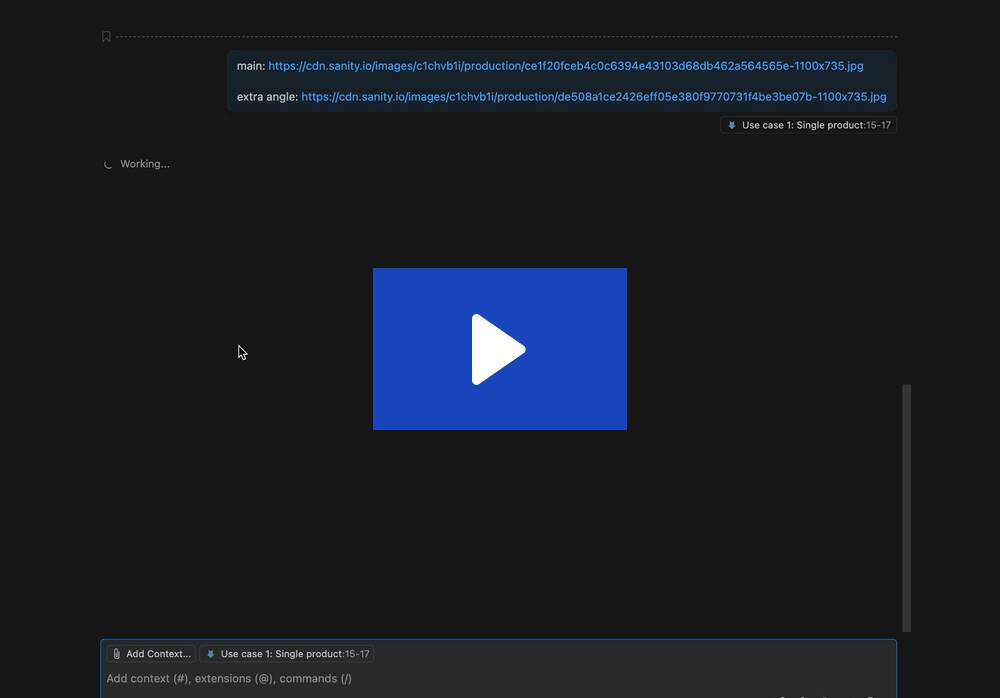About
A Node.js MCP server that lets LLM clients interact with the Plainly video platform, enabling automated rendering, status checks, and item discovery via a simple API.
Capabilities

The Plainly MCP server bridges the gap between conversational AI assistants and the video‑creation platform Plainly. By exposing Plainly’s RESTful endpoints through the Model Context Protocol, developers can let LLMs like Claude orchestrate video production workflows directly from chat. This eliminates the need for manual API calls or UI interactions, enabling a more natural, context‑aware dialogue that can fetch templates, submit renders, and track progress—all within a single conversational thread.
At its core, the server implements four practical tools that mirror Plainly’s primary use cases. gives the assistant a catalog of all available designs and custom projects, allowing it to present choices or filter by criteria. dives deeper into a specific item, exposing required and optional parameters such as aspect ratios, preview links, and other metadata that the LLM can use to craft precise prompts or validate user input. submits a render job with the necessary parameters, while monitors the job’s progress and surfaces any errors or final preview URLs. Together, these tools provide a complete end‑to‑end pipeline from selection to completion.
The server’s design prioritizes ease of integration. It requires only a Plainly API key, which is passed as an environment variable, and it can be launched via Smithery or directly with Node.js. Once registered, an LLM client automatically discovers the four tools and can invoke them as part of its reasoning loop. Because the server returns structured JSON, developers can rely on type safety and straightforward parsing, making it trivial to embed the results into subsequent prompts or user interfaces.
Real‑world scenarios that benefit from this integration include automated marketing workflows where a content manager asks the assistant to generate a new promotional video based on a template, or a customer support chatbot that can fetch the status of a previously submitted render. In educational settings, instructors could prompt the assistant to create video explanations on demand. Any workflow that involves repetitive or parameter‑heavy interactions with Plainly’s API can be streamlined, saving time and reducing errors.
Finally, the server’s lightweight Node.js implementation means it can run on any environment that supports JavaScript, from local machines to serverless platforms. Its clear separation of tools and the absence of custom prompts or resources keeps the protocol lean, yet it remains fully extensible—future updates could add richer prompt templates or resource bundles as the MCP ecosystem evolves.
Related Servers
Netdata
Real‑time infrastructure monitoring for every metric, every second.
Awesome MCP Servers
Curated list of production-ready Model Context Protocol servers
JumpServer
Browser‑based, open‑source privileged access management
OpenTofu
Infrastructure as Code for secure, efficient cloud management
FastAPI-MCP
Expose FastAPI endpoints as MCP tools with built‑in auth
Pipedream MCP Server
Event‑driven integration platform for developers
Weekly Views
Server Health
Information
Tags
Explore More Servers
OpenAPI MCP Server
Expose OpenAPI endpoints as MCP resources for LLMs
Coding Standards MCP Server
Central hub for coding style guidelines and best practices
Microsoft Dynamics 365 MCP Server
Connect Claude Desktop to Dynamics 365 via Model Context Protocol
OPC UA MCP Server
Bridging AI agents with industrial OPC UA systems
MCP Server Nmap
Fast, automated network port scanning for debugging
Jakegaylor Com MCP Server
Express-powered HTTP and MCP endpoint for LLM integration